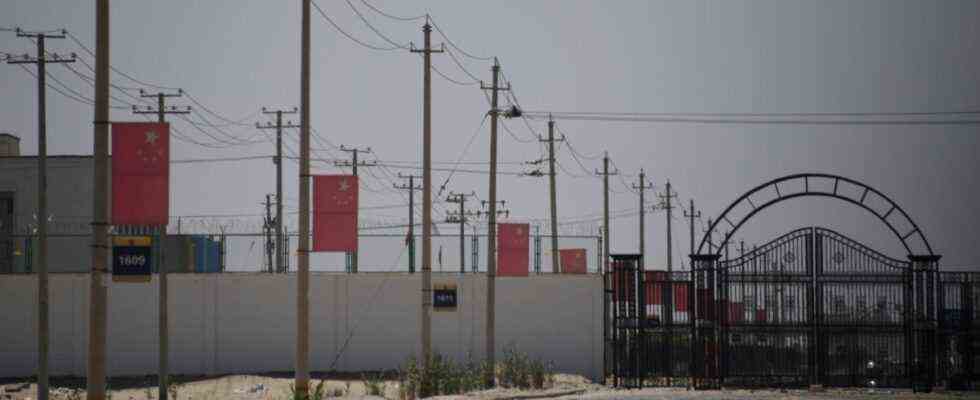The European Center for Constitutional and Human Rights (ECCHR) has filed criminal charges against several German clothing brands and retailers with the Attorney General in Karlsruhe. “Aiding and abetting crimes against humanity in the form of enslavement through forced labor,” is the allegation. In essence, the focus is on the companies’ activities in China and the question of what business relationships they have in the western Chinese region of Xinjiang. Hundreds of thousands of Uyghurs are locked up in re-education camps there on the border with Kazakhstan. Experts estimate that from September to November up to half a million Uighurs are likely to pick cotton on the fields of Xinjiang, mostly by hand and against their will. The Chinese government denies the existence of forced labor in Xinjiang, speaks of training and work programs to combat extremism in the region.
If companies in such a situation continue to award contracts to companies that have production facilities in Xinjiang, the question arises as to whether this is not promoting forced labor, says international lawyer Miriam Saage-Maaß from ECCHR: “We see it as the task of the judicial system to clarify this question. ” It is unclear whether the Federal Public Prosecutor’s Office will determine whether there is even a basis for a criminal investigation.
Mentioned by name in the ad that the Süddeutsche Zeitung and Report Mainz is available, for example the discounter Lidl. According to its supplier list, the company had relationships with three textile companies based in Kashgar, in southern Xinjiang. At least two of these companies are said to have employed former inmates of the re-education camps and thus actively supported the policy of the Chinese apparatus in Xinjiang. Upon request, Lidl announced that it had not been working with two companies for “over a year”, and not since the end of June with the third company.
The US has imposed an import ban on cotton from Xinjiang
The first indications that forced laborers may be used in the fields in Xinjiang have been around for almost three years. In April 2019, the Fair Labor Association pointed out the risks of forced labor in Xinjiang. In July 2020, the U.S. Department of Commerce blacklisted individual companies operating in Xinjiang. In December 2020, the Fair Labor Association banned its members from procuring raw materials, operating supplies or finished products from the region because of the high risk of forced labor. In January 2021, the US government finally imposed a general import ban on cotton from Xinjiang. Only five months later, Lidl stopped business relationships in the region.
However, it is extremely difficult to prove the compulsion for individual supplier companies, as the human rights organization is trying, says the sinologist Björn Alpermann from the University of Würzburg, who has been researching Xinjiang for years and has analyzed the ad. “In none of the cases reported I can find crystal-clear evidence of forced labor,” he says, but there are “many suspicious factors that should be investigated.”
Just how Independent audits, which are usually called audits in the industry, rarely take place. In the case of Xinjiang, many of the specialized testing companies are now refusing to assess the human rights situation in the textile supply chain. The world’s leading five audit companies, including TÜV Süd, declared in September 2020 that they would no longer offer inspection services in Xinjiang because reliable auditing could no longer be guaranteed due to the repressive actions of the authorities and the establishment of a police state in the region. However, the basis for human and labor rights audits in factories are discussions with workers who can express themselves freely. In Xinjiang this is currently unimaginable.
How many supply chains from German and international textile companies still reach Xinjiang is unclear, as only some of the companies actually publish their delivery lists. This means that the public will focus on those companies that are more transparent than others. It is now up to the Attorney General to decide whether to investigate the complaint or to put it on file.

